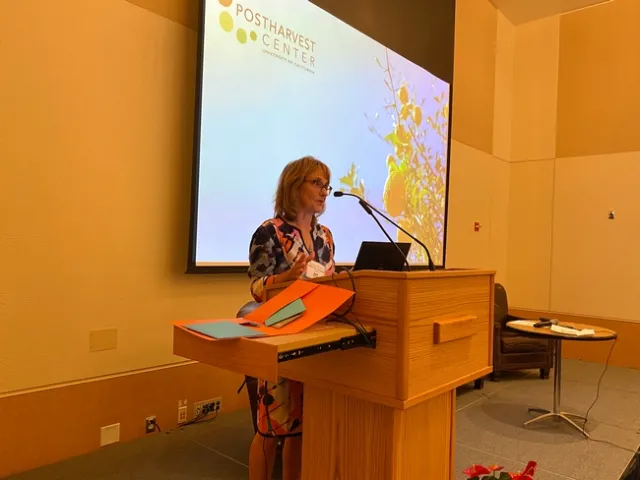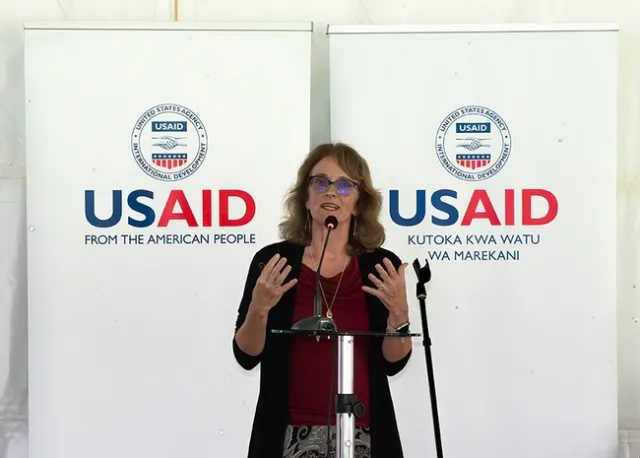
Elizabeth Mitcham, UC Cooperative Extension pomology specialist, retired July 1 after 31 years of serving in the UC Davis Department of Plant Sciences.
Growers know Mitcham for her work in tree fruits and nuts, berries, tomatoes, grapes and pest management. She specialized in produce after harvest, researching new ways to maintain flavor quality and reduce food loss. From storage to processing, marketing, policy and trade, she has striven to secure better returns for farmers and more nutritious food for consumers – at home and around the world. She has been active in the UC Agriculture and Natural Resources workgroups to share her knowledge.
Mitcham served as director of the UC Davis Feed the Future Innovation Lab for Horticulture since 2009. Under her visionary leadership, the lab has achieved significant milestones. Her contributions include work in emerging economies to make horticulture a profitable business for smallholder farmers. From 2009 to 2016, she was director of the UC Postharvest Technology Center, also on the Davis campus.
Mitcham's academic work has been recognized with the Outstanding International Horticulturist award from the American Society for Horticultural Science in 2015; and the UC Davis Chancellor's International Engagement Achievement Award in 2018. She served as ASHS vice president for the international division from 2017 to 2019.

Mitcham started out studying Christmas trees and eventually came to focus on fruit ripening and nutrition. All of her degrees are in horticulture: She earned a bachelor of science degree from the University of Maryland in 1984; a master's from North Carolina State University in 1986; and a doctorate from the University of Maryland in 1990.
In developed countries, an estimated 20% of food is wasted on the farm or from improper or inadequate drying, storage, packaging and transportation. Nearly one-third of all the food produced in the world is never eaten.
Mitcham linked complex mechanisms including marketing, large-scale retailers and consumer behavior to shocking levels of food waste: An estimated 40% of all the food produced in the United States gets thrown out, according to the food rescue organization Feeding America. Much of that waste occurs after consumers buy their food.
“Unfortunately, the costs are so low that sometimes it's cheaper to buy way more than you need than it is to buy a reasonable quantity, so it tends to drive consumer behavior in that direction,” Mitcham explained in a 2020 interview.
Mitcham announced her retirement plans in May during a Feed the Future Innovation Lab meeting with regional partners in Nairobi, Kenya, hosted by the United States Agency for International Development. “We're so grateful to all of you for the leadership of your lab,” said Rob Bertram, chief scientist in USAID's Bureau for Resilience and Food Security.
Succeeding Mitcham at the Feed the Future Innovation Lab are Director Erin J. McGuire and Associate Director Archie Jarman. Both have worked with the lab for several years.
“Beth has those unique qualities that have made her an amazing leader – she was completely committed to achieving the goals of the Innovation Lab; passionate about horticulture, has expertise in a broad set of critical areas, and was engaged in making sure that her staff and the Horticulture Innovation Lab network operates as a supportive team that achieves both professional and programmatic goals," Jarman said.

